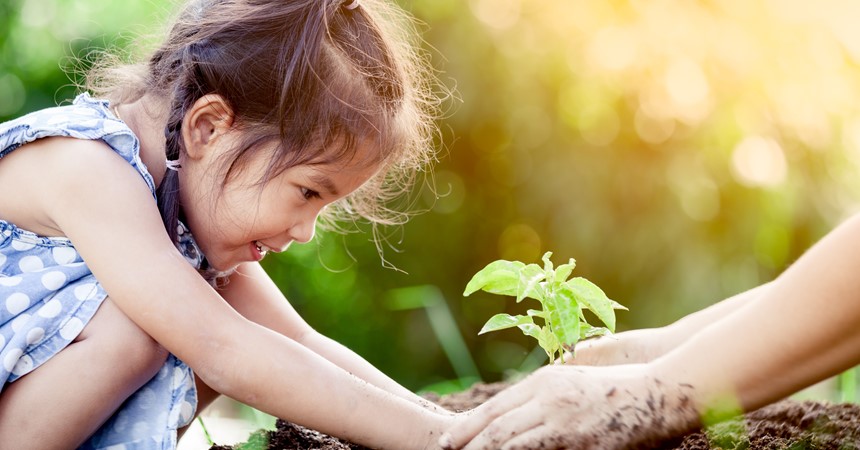Council for Mission co-chair, Lawrie Hallinan posed Pope Francis’ question as we sat down to discuss the launch of the Vatican’s Laudato si' Action Platform, a space for institutions, communities, and families to learn and grow together.
There is certainly no shortage of examples which would cause you to answer his
question in the affirmative. The City of Newcastle reports that Stockton Beach is slowly disappearing, losing 112,000 cubic metres of sand every year. Additionally, a study by the Journal of Rural Health found residents living in the Hunter Valley are being exposed to higher levels of air pollution than those in inner-city Sydney due to the ongoing effects of the coal mining industry. Globally, Madagascar is experiencing its worst drought in 40 years, which the UN World Food Programme has warned will push 400,000 people into famine. At the other extreme, nearly 200 people in Europe have lost their lives in unprecedented floods.
"We're polluting; we're poisoning; we're robbing this place of nutrition," Mr Hallinan said.
"I think what God is saying is, if you look at what has happened, you will appreciate that He had a different plan. So, we need to start healing the Earth."
The degradation of our environment and the rise of poverty are inextricably linked. As our planet continues to be battered by worsening natural disasters and experiences the full brunt of climate change, the world's poorest citizens suffer the harshest of consequences. Livelihoods are increasingly becoming endangered, water and food sources depleted, and an ever-growing number of people are being dislocated from their homes.
Pope John Paul II and Pope Benedict XVI both called for an ecological conversion. However, it was not until Pope Francis' Laudato si' was published that the protection of all of God's creations was formally brought to the forefront of Catholic social teaching.
Mr Hallinan said, "Pope Francis has brought all of the Vatican's previous statements on the environment together in a much more integrated way. I think because he comes from a developing country, he sees that the poor are the ones who suffer most when the environment is degraded."
"Pope Francis talks about needing an integral ecology where we see people and all of the environment as interconnected."
Historically, the understanding of Creation was that God put humans in charge of all of Creation. Throughout Laudato si', Pope Francis challenges this point of view by emphasising that we are interconnected and that we are brothers and sisters with Creation.
Mr Hallinan notes other creatures have value, not simply because of their use to
human beings, but in themselves.
"It's about understanding each other and appreciating the perspective of the other, whether the other is a slug, seal or student in a school. If we take this seriously it has implications beyond the environment."
"It also invites us to organise our social structures on the same principles of mutual respect, supporting a diversity of voices and expressions, and advancing each others welfare.
"God is saying, ‘you need to convert, you've gone on a wrong track. If you really
want to be with me in bringing about a better world, a world where you are closer to me, then you need to be working in harmony with the natural world’."
The Laudato si' Action Platform, launched by Pope Francis in May 2021, is a unique collaboration between the Vatican, an international coalition of Catholic organisations. Taking a truly ground-up approach, it is rooted in the strengths and realities of communities around the world, empowering all to take “decisive action, here and now” as we journey towards a better future together. (LS 161)
Mr Hallinan believes that if the Catholic Diocese of Maitland-Newcastle were to take part in the seven-year action plan, it would be nothing short of transformational.
With the cry of the earth and the cry of the poor having never seemed louder, what can we do on a local level to help? According to Mr Hallinan, it all begins with changing our mindset.
"The action platform is for the whole Church. Parishes, schools, welfare ministries, and families sign up for a seven year commitment to work at implementing Laudato si'. It isn't just about doing practical things – it is about a change of heart, and a change of mind as well."
"The cry should not just be understood as 'I'm hurting – you need to stop hurting me'. The cry is also, 'I am your brother. I am your sister. You and I are of the same stuff' and have the same Creator."
"We're not the boss of Creation. What we do impacts others. Once we take that to heart as a Church, it changes how we do everything."



























































































